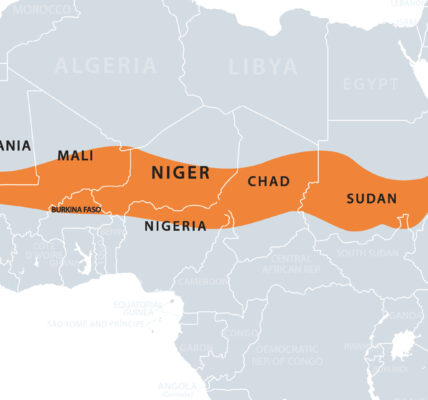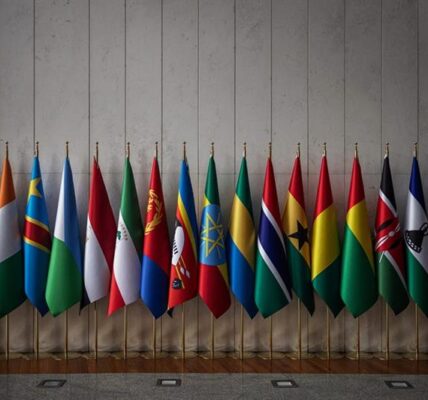In the aftermath of the 2011 Egyptian Revolution, the country’s new government faced the daunting task of rebuilding its economy while addressing long-standing demands for economic justice. One of its first meaningful steps was raising the national minimum wage—a modest but powerful measure aimed at improving the lives of millions of workers. But what should have been a sovereign decision in the public interest quickly turned into a high-stakes legal confrontation.
French multinational Veolia Propreté responded not with negotiation or adaptation, but with litigation—suing the Egyptian government under the France-Egypt Bilateral Investment Treaty (BIT). The company claimed that the wage increase had harmed its profits and sought compensation through a little-known but deeply consequential legal mechanism: Investor-State Dispute Settlement (ISDS).
Far from being a neutral forum for resolving disputes, ISDS was designed to give corporations a powerful tool to challenge domestic policies—especially in developing countries—without ever setting foot in a public courtroom. The Veolia v. Egypt case exposed the true function of this system: to shield foreign investors from the democratic decisions of sovereign nations, even when those decisions are aimed at lifting people out of poverty.
This piece unpacks the Veolia case to examine how ISDS operates, what it reveals about the balance of power in the global economy, and how international investment law has become a vehicle for corporate interests to override national policy.
Veolia’s Lawsuit and the Legal Grounds
Veolia’s involvement in Egypt began with a lucrative waste management contract in the city of Alexandria, awarded to its subsidiary, Veolia Propreté. The company’s operations in Egypt were part of a broader strategy to expand its footprint in emerging markets, particularly those in the Middle East and North Africa. However, the post-revolutionary government of Egypt, grappling with social unrest and calls for economic justice, sought to implement a series of reforms aimed at improving the living conditions of its citizens. Among these reforms was a significant increase in the national minimum wage, which had stagnated for years and failed to meet the rising costs of living.
Veolia, claiming that this increase in labor costs jeopardized its profit margins, filed a lawsuit against the Egyptian government under the France-Egypt Bilateral Investment Treaty. The company’s legal argument was rooted in two key provisions of the BIT: the principles of “fair and equitable treatment” and protection against “indirect expropriation.” Veolia contended that the wage hike undermined its ability to operate profitably and violated the treaty’s provisions by effectively expropriating its investments without compensation.
This legal claim exemplified the clash between a nation’s right to implement social reforms and the protection of foreign investment through international treaties. The company argued that its financial interests were being undermined by a policy designed to improve the lives of Egyptian workers, while the government of Egypt saw the wage increase as a critical step in its broader social and economic agenda.
But the issue went beyond the specifics of Veolia’s operations. The case illuminated a fundamental dilemma: Can a sovereign nation pursue policies that benefit its citizens if doing so risks upsetting foreign investors? This question lies at the heart of modern international investment law, which often privileges the rights of investors over the rights of states to enact regulations in the public interest.
Investor-State Dispute Settlement (ISDS): A Legal System Built to Undermine Sovereignty
The Veolia case shines a light on the Investor-State Dispute Settlement (ISDS) mechanism—not as a well-intentioned but flawed system, but as one designed from the outset to prioritize corporate interests over national sovereignty, especially in the Global South. Marketed as a safeguard against political instability and expropriation, ISDS was embedded in trade and investment agreements to ensure that multinational corporations could sidestep local legal systems and hold governments accountable—not for abuses of power, but for policies that might cut into profits.
At the center of these cases is the International Centre for Settlement of Investment Disputes (ICSID), a World Bank-affiliated arbitration body that operates far from the public eye. Unlike national courts, ISDS tribunals conduct proceedings in secret, with no requirement to disclose filings, evidence, or even the final rulings in full. This secrecy isn’t a bug in the system—it’s a feature. It allows corporations to challenge regulations, labor laws, and environmental protections without public scrutiny, shielded from democratic accountability.
In Veolia v. Egypt, the company sued the Egyptian government for raising the minimum wage—claiming the policy harmed its bottom line. The details of Veolia’s legal claims and financial demands were never fully disclosed, emblematic of how ISDS silences public oversight. Cases like this make clear that ISDS isn’t a neutral tool for legal redress; it’s a powerful weapon for corporations to discipline governments, particularly those in the Global South, for attempting to serve the public good.
Far from being corrupted over time, ISDS has functioned precisely as intended: to insulate capital from democratic decision-making and empower foreign investors to extract compensation when public policy interferes with private gain. The result is a system that protects profits, not people—and was built that way from the very beginning.
Regulatory Chill
One of the most significant consequences of the ISDS system, particularly in cases like Veolia v. Egypt, is the phenomenon of “regulatory chill.” This term refers to the idea that governments may be deterred from enacting progressive or socially beneficial policies for fear of triggering costly lawsuits from foreign investors.
The Veolia case is frequently cited as an example of regulatory chill in action. The lawsuit sent a clear message to other governments in Egypt and beyond: if you raise labor costs or pass laws that impact foreign investors, you risk facing expensive legal challenges in international tribunals. The prospect of facing such lawsuits can make governments wary of implementing reforms, particularly in areas related to labor rights, environmental protection, and public health.
Data from the United Nations Conference on Trade and Development (UNCTAD) reveals that the vast majority of ISDS claims are brought against developing countries, which are often the most vulnerable to such legal challenges. For these nations, the threat of financial penalties can be a powerful deterrent, leading them to avoid pursuing reforms that could benefit their citizens but potentially harm the profits of foreign corporations.
In the case of Egypt, the Veolia lawsuit exemplified the chilling effect that ISDS can have on national policy. Although Egypt ultimately raised the minimum wage, the legal challenges presented by multinational corporations like Veolia may have created hesitation in other areas of social reform. For instance, future governments might shy away from passing laws that would raise the cost of doing business for foreign investors, even if such policies are in the public interest.
The Role of Multinational Corporations in Global Governance
The Veolia case raises important questions about the role of multinational corporations in shaping global governance. Today, multinational companies have more power and influence than many governments, especially in the context of international trade and investment law. Through legal mechanisms like ISDS, these corporations are able to challenge domestic policies and force governments to negotiate settlements that favor corporate interests.
Corporations like Veolia can use ISDS to challenge laws that they believe interfere with their ability to make a profit. This creates a scenario where corporate interests are placed above the needs of citizens, especially in developing countries. Multinational corporations have the financial resources to launch and sustain lengthy legal battles, and they often have teams of legal experts ready to exploit the complexities of international investment law to their advantage.
While governments typically represent the interests of their citizens, multinational corporations often operate in multiple countries and have the means to prioritize their global interests. This creates a power imbalance, where corporate interests can sometimes override national sovereignty. The Veolia case is just one example of how the influence of corporations is reshaping the global legal landscape, giving them the ability to challenge policies that may be unfavorable to their bottom line.
Is ISDS Broken—Or Working Exactly As Intended?
The Veolia case, like countless other ISDS disputes, has fueled global outrage—not just over individual outcomes, but over the legitimacy of the entire system. Critics argue that ISDS doesn’t merely fail to protect the public interest; it actively suppresses it. By design, the system enables multinational corporations to challenge domestic laws in opaque tribunals that operate beyond the reach of democratic accountability. The question is no longer whether ISDS is broken—but whether it was ever meant to serve the public in the first place.
In response to mounting criticism, some reform-minded institutions have proposed changes that aim to make the system more transparent and consistent. The European Union, for example, has floated the idea of a multilateral investment court with public hearings and more predictable rulings. While these reforms gesture toward fairness, they stop short of challenging the core imbalance of power: a system that elevates investor rights above the sovereign authority of states.
And reform won’t come easily. Many governments—particularly those tightly bound to corporate interests—remain reluctant to cede any part of a system that has served investors so well. Even proposals for modest transparency face resistance, raising serious doubts about whether true reform is possible within a system that was never built to be fair in the first place.
Voices from the Frontlines
The Veolia case has sparked widespread debate across legal, political, and economic circles, with advocates and critics of the ISDS system fiercely defending their positions. While some argue that ISDS is necessary to protect investors from arbitrary government actions, others contend that it undermines democratic processes and national sovereignty.
Proponents of ISDS, particularly in the legal and business communities, argue that it provides a crucial safeguard for foreign investors. In many parts of the world, they point out, governments are unstable, and legal systems are weak. In these environments, foreign investors can face significant risks, ranging from expropriation of their property to arbitrary legal decisions that can dramatically affect their investments. ISDS is seen as a way to mitigate these risks and ensure that investors are protected, even when they operate in countries with weaker governance structures.
However, critics of the system argue that ISDS allows multinational corporations to wield undue influence over sovereign governments. These critics believe that ISDS disproportionately benefits powerful corporations, who can use it as a tool to challenge policies that aim to protect workers, the environment, or public health. In some cases, corporations can even challenge laws that they argue interfere with their ability to make a profit, as seen in the Veolia case.
Human rights organizations, labor unions, and NGOs have voiced particular concerns about the growing power of corporations under the ISDS system. They argue that the system allows companies to challenge policies that might negatively affect their profit margins, even if those policies are critical to addressing social justice or environmental issues. The chilling effect caused by the fear of expensive litigation can prevent governments from implementing vital reforms, even if those reforms are popular with citizens and necessary for the public good.
At the heart of the debate is the question of balance. How can governments protect the rights of their citizens while still encouraging foreign investment? How can the global legal system create a fair process for resolving disputes between investors and states, one that ensures both parties are held accountable and the public interest is respected?
Alternative Dispute Resolution Models
While ISDS remains the dominant method for resolving disputes between foreign investors and states, there have been several alternative dispute resolution (ADR) models proposed in recent years. These models aim to address the concerns raised by critics of ISDS, particularly with regard to transparency, accountability, and the balance of power between multinational corporations and sovereign nations.
One such model is the multilateral investment court, which has been proposed by the European Union as an alternative to ISDS. Unlike ISDS tribunals, which are often ad hoc and opaque, a multilateral investment court would operate with greater transparency, public access to hearings, and a more predictable system of rules and procedures. The court would be permanent, with a roster of judges who would be selected based on their expertise in international investment law. This model aims to create a more consistent and impartial process for resolving disputes between investors and states.
Another approach is the use of domestic dispute resolution mechanisms. Countries like South Africa and India have begun to move away from traditional BITs and ISDS in favor of national-level mechanisms for resolving investment disputes. These mechanisms may include domestic courts, as well as specialized tribunals or arbitration panels. Proponents of this approach argue that it would allow states to retain greater control over their legal systems and ensure that disputes are resolved in a manner that aligns with national interests.
One of the advantages of these alternative models is that they would allow for greater participation from civil society organizations and the public. In the traditional ISDS system, proceedings are often confidential, and there is limited transparency regarding the legal arguments and evidence presented by the parties involved. By contrast, alternative ADR models could provide a more open and democratic process, ensuring that the voices of citizens, workers, and environmental groups are heard in the resolution of disputes.
However, these alternative models are not without their challenges. Creating a multilateral investment court, for example, would require significant international cooperation and political will, particularly from powerful countries that benefit from the current ISDS system. Similarly, relying on domestic dispute resolution mechanisms could lead to concerns about bias and fairness, particularly in countries where the legal system is not independent or transparent.
Despite these challenges, there is growing recognition that the ISDS system is in need of reform. The Veolia case, and others like it, have highlighted the need for a legal framework that better balances the rights of investors with the rights of governments to pursue policies that benefit their citizens.
The Future of National Sovereignty
As we reflect on the Veolia v. Egypt case, it’s clear that the tension between multinational corporate power and national sovereignty is a central issue in global governance today. The case has become a symbol of the broader debate about the role of corporations in shaping public policy and the ability of states to make decisions in the best interests of their citizens.
The legal arguments presented by Veolia in this case—specifically, the claim that Egypt’s minimum wage increase amounted to an indirect expropriation—raise important questions about the scope of investor protections under international law. If multinational corporations are allowed to challenge policies that improve the lives of ordinary citizens, what does that mean for the ability of governments to govern in the public interest?
The Veolia case also highlights the growing influence of multinational corporations in global governance. These corporations, often larger and more powerful than many governments, are able to use international legal mechanisms like ISDS to challenge national policies. This creates an asymmetry of power, where corporate interests can sometimes trump the needs of citizens.
As the global legal landscape continues to evolve, the future of national sovereignty will be shaped by the ability of governments to protect their citizens’ interests in the face of multinational corporate power. The question remains: Can nations retain control over their policies, or will corporations continue to exert influence over the laws that govern their countries?
Will ISDS Be Reformed?
The Veolia v. Egypt case is just one example of the larger battle between multinational corporations and sovereign governments. As we have seen, the ISDS system has been used to challenge public-interest policies related to labor, health, and the environment, raising serious questions about the fairness and transparency of international investment law.
While reforming ISDS is no easy task, there are promising signs that change is possible. Countries around the world are beginning to rethink their investment treaties and explore alternative methods for resolving disputes. The growing awareness of the issues raised by cases like Veolia v. Egypt has prompted international discussions about creating a more balanced system that takes into account the rights of both investors and governments.
Ultimately, the Veolia case serves as a wake-up call for policymakers, legal scholars, and civil society organizations to take a closer look at the power dynamics embedded in international investment law. If reforms are to be made, they must ensure that corporate interests are balanced with the needs of citizens and the right of governments to enact policies that benefit the public good.
As the debate continues, one thing is clear: the future of ISDS and international investment law will have significant implications for the ability of governments to protect their citizens, promote social justice, and safeguard national sovereignty.




